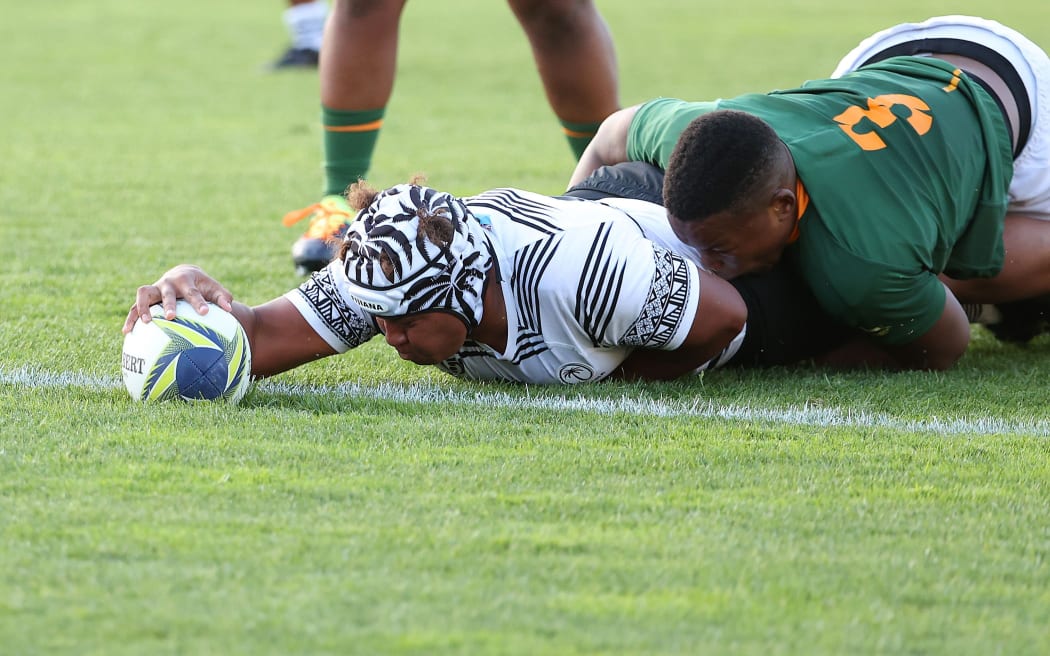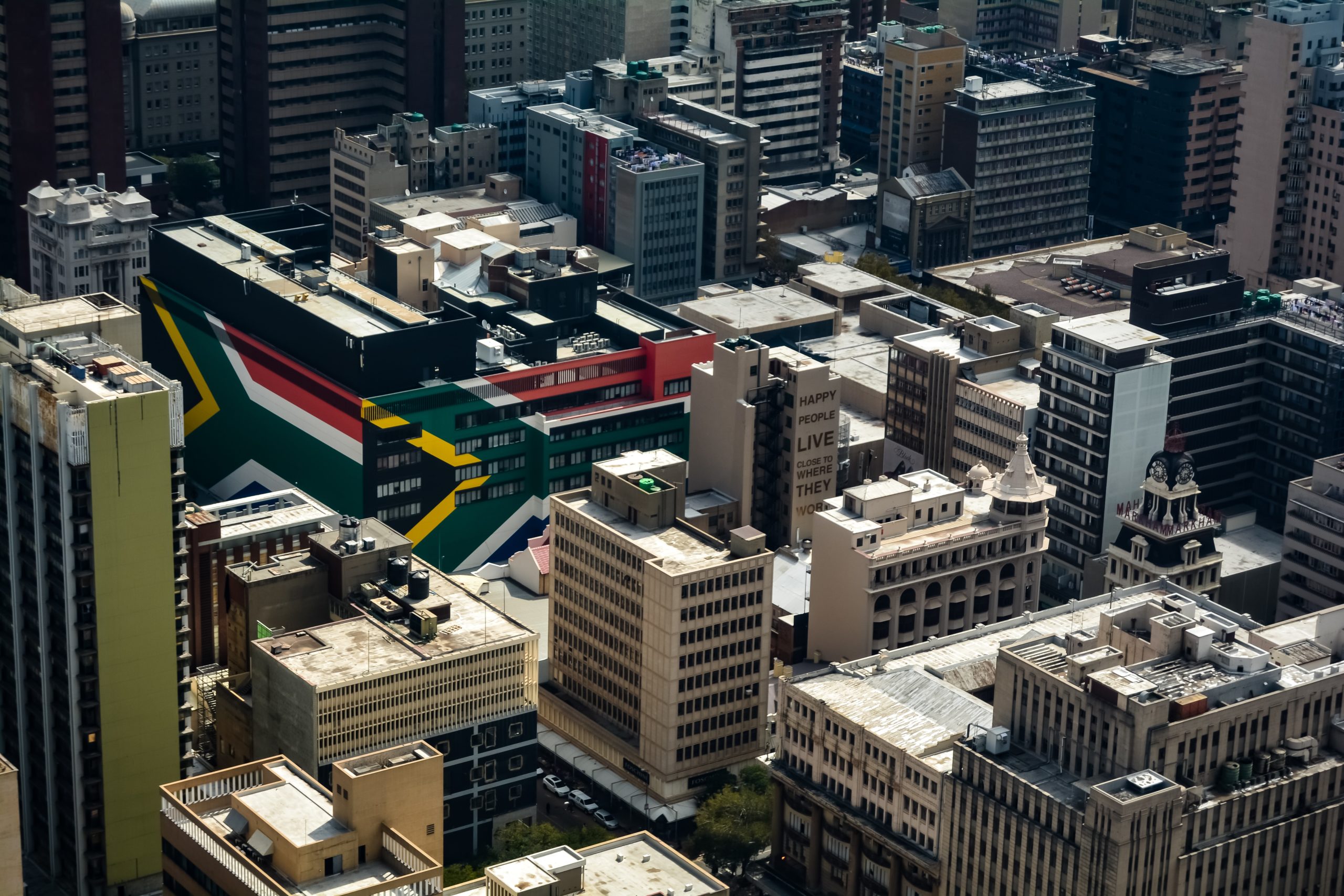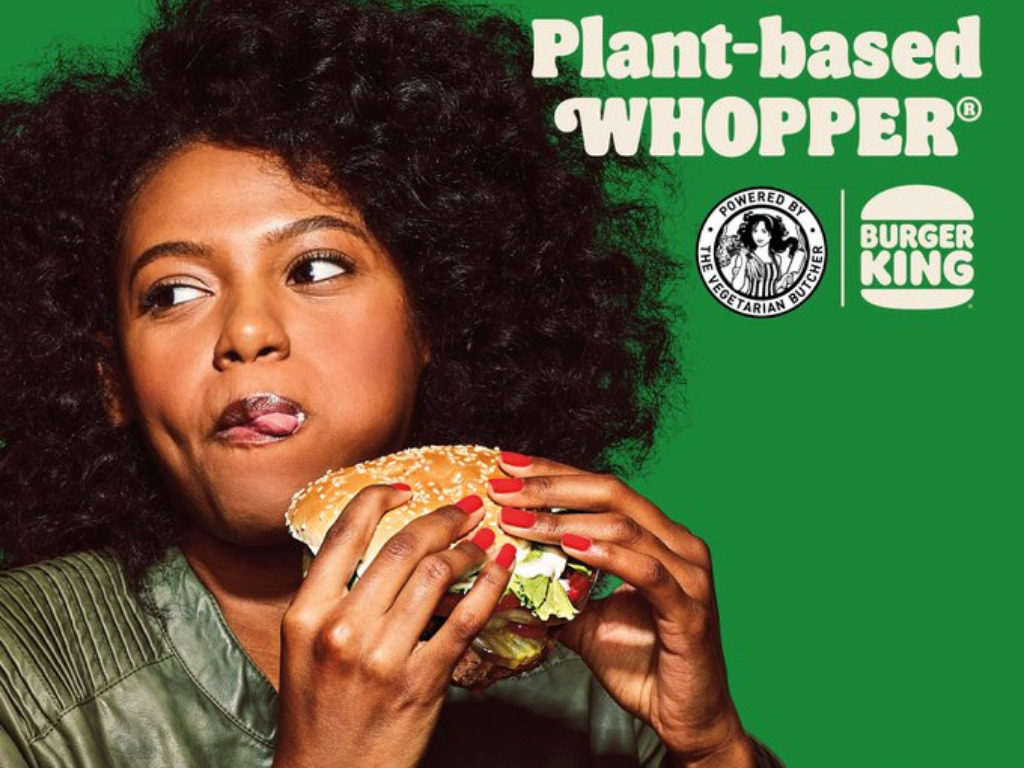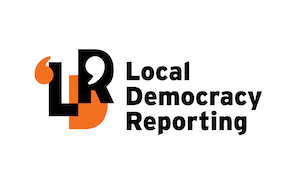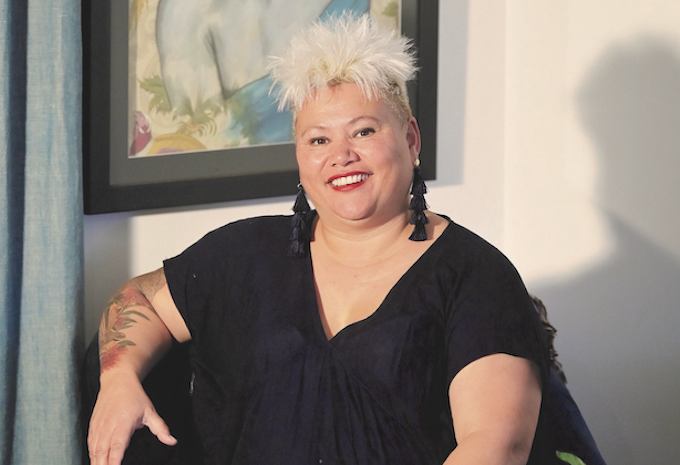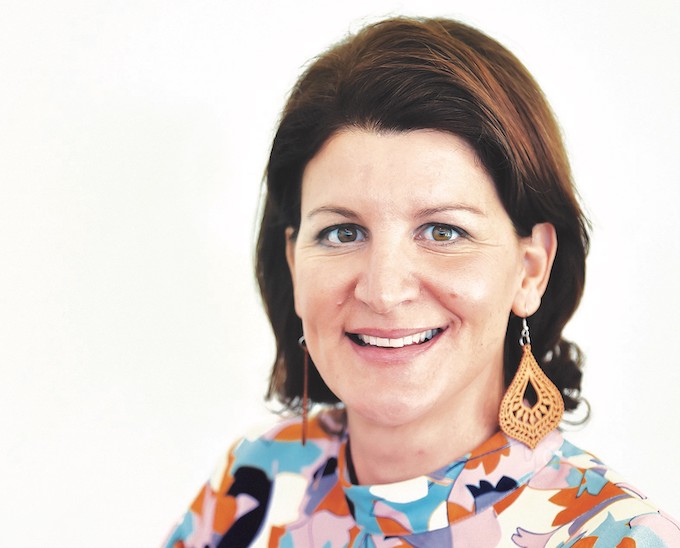AMY GOODMAN: This is Democracy Now!, Democracynow.org, the War and Peace Report. I’m Amy Goodman with Nermeen Shaikh. We turn now to look at the crisis in Ethiopia. Peace talks between Ethiopia’s government and rebel forces in Tigray began earlier this week in South Africa. The African Union is mediating the talks which are aimed at ending a devastating conflict that began two years ago. Hundreds of thousands have been killed in the brutal war. One analyst estimates the death toll could be as high as 800,000 people. Millions have also been displaced, hundreds of thousands facing famine. Last week, the head of the World Health Organization, Tedros Adhanom Ghebreyesus, who is from the Tigray region, warned time is running out to address the humanitarian crisis.
TEDROS ADHANOM GHEBREYESUS: This is a health crisis for six million people and the world is not paying enough attention. I urge the international community and the media to give this crisis the attention it deserves. There is a very narrow window now to prevent genocide.
AMY GOODMAN: Joining us from Germany is Tsedale Lemma. She is a journalist and founder of Addis Standard an English-language monthly magazine based in Ethiopia. Welcome back to Democracy Now!, Tsedale. Can you talk about the significance of these peace talks that are taking place outside of Ethiopia in South Africa and what is happening in the Tigray region?
TSEDALE LEMMA: Thank you, Amy. Good morning. The significance of this peace talk is such that this is the first time at high level that the two parties are having an open and public face-to-face meeting to try to solve the problem that has run for the last two years. We have not had that. There have been some secretive talks between the two that were happening, but they all collapsed. So the significance is that this is the first time happening in two years, with all involvement of the international community at diplomatic efforts. That is hows significant it is. It is also significant because on the ground, people are dying in tents every day. Tigray is literally being decimated as we watch. So the significance cannot be undermined at the moment.
NERMEEN SHAIKH: Could you explain the importance of the African Union mediating these talks?
TSEDALE LEMMA: Nermeen, there is a lot of reservation about the African Union being in charge of these peace talks. For one thing, it has done nothing for the last two years despite it being headquartered in Addis Ababa, the epicenter itself for the country, for this war. It has done really nothing for the last two years. But it is important to notice it is now being assisted by other stakeholders, most importantly IGAD, the Intergovernmental Agency in Africa, and also the U.S. government. This combined effort could yield a result. But the African Union in and of itself has proved to be a total failure in stopping this war.
AMY GOODMAN: Can you talk about who the parties are at the table and what is at stake?
TSEDALE LEMMA: The parties at the table are the federal government of Ethiopia and the Tigray government, which is a regional state in the north of Ethiopia. Authorities from the Tigrayan government, led by Getachew Reda, to my understanding, who is the spokesperson of the president of Tigrayan regional state, and the federal government is represented by a few people, among them the attorney general and the security advisor of the prime minister. So the warring parties are the two that are now on the negotiation table.
What is at stake is—a lot. We are waiting for what the two parties are going to come out with at the end of the day, but we know what the Tigrayan authorities want from this negotiation as a result, or peace talk as a result. They want an immediate cessation of hostilities to this war, which would be two years next week. They want an unfettered access, humanitarian access, to seven million people that have been under siege for more than a year now. They also want international media and human rights organizations to be granted access to the Tigray region so they can monitor the human rights abuses that continue happening with the involvement of the Ethiopian army and Eritrean army. They also want the withdrawal of Eritrean troops from Tigray. What the federal government wanted so far has not been articulated, so we are waiting for this to come out within the next few days.
NERMEEN SHAIKH: Could you also put this in historical context? What is the nature of the relationship of the region of Tigray with the central government in Addis Ababa and what led to the kind of fracture that has produced this absolutely devastating war?
TSEDALE LEMMA: Historically, Tigray has always been a place where the people hold the right to self-administer so dear to themselves. This is the third time that there is an uprising by the Tigrayan people against an attempt by the central government of an Ethiopian state to govern and rule that province. Historically, they have always been very much protective of their right to self-administer. So this is the relationship.
But for the last 30 years, Tigrayans also major power holders in the center, so to say the last reconfiguration of the Ethiopian state happened under their watch together with other allies from the country, and they been able to live in a relative peace for the last 30 years. So to say, this fight with the central government on asserting their right to self-administer had a lull of 30 years. We are back to that historic territory where an Ethiopian central government still wanted to control Tigray and Tigrayan people. So that’s why the resistance of the people of Tigray in pushing back against the actions of the federal government, or the central government, that has led to this latest uprising or resistance by the Tigrayan people.
Politically, the conflict started initially with a rupture in the ruling party itself. The current government that is administering the Ethiopian federal government, led by Prime Minister Abiy Ahmed, was part and parcel of the government that were together in the EPRDF regime that were governing Ethiopia for the last 30 years. With a change in the political dynamics at the center, that fracture began to happen between the TPLF—TPLF is the party that is administering Tigray—and the prime minister’s party. So this fracture, this political fracture that we have seen initially led to that conflict in Tigray.
But the dynamics of the conflict have since changed. The prime minister initially said that he wanted to do law enforcement. What he wanted to do is apprehend a few leadership of the TPLF Party in Tigray. They needed to intervene there because they have attacked an army command center that is located in Tigray. So initially, the purpose of this war was framed as a law enforcement by the federal government in containing the TPLF leaders in Tigray. But the sheer brutality of this conduct has turned the war into a resistance by the Tigrayan people against the federal government because the federal government had invited a foreign army, Eritrean forces, to join it in Tigray. And it was no law enforcement; it was a war against everything that Tigray has. It was a war against Tigray’s peasantry, its agriculture, its education. It was a war against its women!
So the people initially who had given it a benefit of the doubt, for the federal government’s attempt to enforce law enforcement in the region, had risen up! They just realized that this is not a war against TPLF; this was a war against everything Tigray is. So the dynamics of the war has evolved with the last two years into becoming one that the Tigrayan people are actually rising up against the Ethiopian state.
This is why the war has been complicated, for two reasons. One, the dynamics have changed. Two, there was a misunderstanding on how to solve this. Everybody understood this was a power struggle between former allies in the ruling party of the EPRDF. No, it was not. Initially it began like that but it became a war of survival for the Tigrayans and a war of control for the federal government and to governing Tigray. That is why we have seen the world failing in its attempt to solve this problem.
AMY GOODMAN: And let’s remember, the Ethiopian Prime Minister Abiy Ahmed, won the Nobel Peace Prize in 2019. There is another conflict that is happening right now in the region of Oromia in Ethiopia.
Can you talk about whether it is connected to Tigray, how it is connected? The Associated Press reporting drone strikes in Oromia killed several dozen civilians last week, the stronghold of the rebel Oromo Liberation Army came amidst intensified fighting between federal forces and the outlawed group. Can you talk about what is happening there?
TSEDALE LEMMA: The war in Oromia begun actually before the war in Tigray and there has been little coverage about it. It started in 2019 barely a year after Prime Minister Abiy Ahmed came to power, and at the same time when he was actually getting the Nobel Peace Prize award, but there was little attention to it. It is, again, a war of visions. The same way that that prime minister is facing resistance in Tigray today about the nature and style of the kind of governance that he wants to shape out of the Ethiopian state, he is facing that resistance in Oromia.
The Oromo Liberation Army was formerly associated with a political group called Oromo Liberation Front, but after the Oromo Liberation Front came into Ethiopia following the prime minister’s sort of liberalization of the political space, the Oromo Liberation Army broke apart with its mother party, and they said, “No, we are going to continue the resistance, because the way we see the prime minister trying to reconfigure the Ethiopian state is against the half-a-century struggle of the Oromo people. So we will be continuing our fight.”
The war in Oromia started barely a year after Prime Minister Abiy came, but not enough attention was given to it, and now it is really going deep into many parts of Oromia. Actually by the government’s own admission, many parts in Oromia regional state, which is the largest regional state in Ethiopia is out of the control of the federal government and also the regional government, and they are under the control of the Oromo Liberation Army, particularly the western and southern parts of Oromia.
The government, realizing that its armed combatants are being stretched because of the war in Tigray, it has resorted into that intensification of drone attacks, particularly the last two weeks. According to opposition figures, there were more than six drone attacks that were conducted of the federal government, and more than 120 deaths, casualties of civilians. So this war that’s happening in Oromia is happening in the shadow of the war in Tigray. The purpose is a fight against centralized rule that the prime minister favors in his administration. It borrows the same kind of narrative with the war that is happening in Tigray. It’s a pushback against the centralized rule in the country. But it is something that nobody’s paying attention to, and it’s not a part of this peace talk negotiation in South Africa as well.
NERMEEN SHAIKH: Tsedale, just before we end, what is the ultimate aim of the TPLF? Are the demands now likely to be calls for a referendums on independence? Is Tigray even interested at this point, given the brutality of this war, of remaining part of Ethiopia? And also the territorial issues between Ethiopia and Tigray now?
TSEDALE LEMMA: The TPLF as a party is, among other Tigrayan political parties I would say, one of the most pro-Ethiopian political parties. I don’t think they will be pushing for a referendum on their own but the idea of referendum is enshrined in the Ethiopian constitution, Article 39, so if the Tigrayan people want, TPLF can do nothing about it. It’s the wish and determination of the Tigrayan people.
At the moment, what the TPLF as the governing party in Tigray want, from their repeated statements and all these things, they want a sovereign regional state of Tigray. They want the encroachment by the federal government to end. They want their self-administration restored. They want Eritrean forces, which are there as an ally of the prime minister, to be withdrawn from the sovereign territory of Tigray, so they can have the self-administration, self-rule of the Tigrayan people guaranteed according to the Constitution.
The federal government interprets this one as a power grab by the TPLF. The power grab contest has ended in 2018 when the TPLF gave way to the prime minister himself and voted 100% for him. They gave way for that. But the federal government has always been suspicious that they want to return back to the center, to grab power again. I don’t think that is what they want. What they want is an independent self-rule system in Tigray whereby the people of Tigray can have a say on their destiny. But if the people in Tigray want to invoke Article 39 and want to go for a referendum of secession, it is enshrined in the Constitution. It is their constitutional right and TPLF cannot stop that. But so far I don’t think TPLF will be taking the lead in having Article 39 invoked. Of all the parties that are functioning in Tigray, it’s the most pro-Ethiopian party in my assessment.
That’s what’s at stake. The territorial integrity issue there has been compromised by none other than the ruling party itself, the federal government, which has invited a foreign army to come and pillage and wreck and kill and occupy the territorial independence of the Ethiopian state. Tigray, remember, is still a part of the Ethiopian state, so an occupation by Eritrea should be considered as an occupation of the Ethiopian sovereign state! But Eritrea is there with an explicit support of the federal government, which makes it a treason, by the way, according to the Constitution. So this is the dynamics in play at the moment.
AMY GOODMAN: We have ten seconds.
TSEDALE LEMMA: To conclude this one, at the moment it is better that we focus on the hopes that we are pinning on this peace talk negotiation. The hopes is that they will be agreeing on a cessation of hostilities which would pave ways for access to humanitarians and lifting the siege, a medieval-era siege that has been imposed on Tigray. No communication, no banking, no road, nothing. It’s seven million people completely sealed off. We need that to be lifted. For that to happen, a cessation of hostilities is a must to have. So we hope that the talks in South Africa would guarantee so that people in Tigray can be having access to their own bank, having access to telecommunications, and access to food.
AMY GOODMAN: Tsedale Lemma, we want to thank you very much for being with us, journalist and founder of the Addis Standard English-language monthly magazine in Ethiopia, speaking to us from Germany. Thank you so much. Next up, we talk about why hospitals are filling up around the country with children and infants with RSV. Stay with us.
